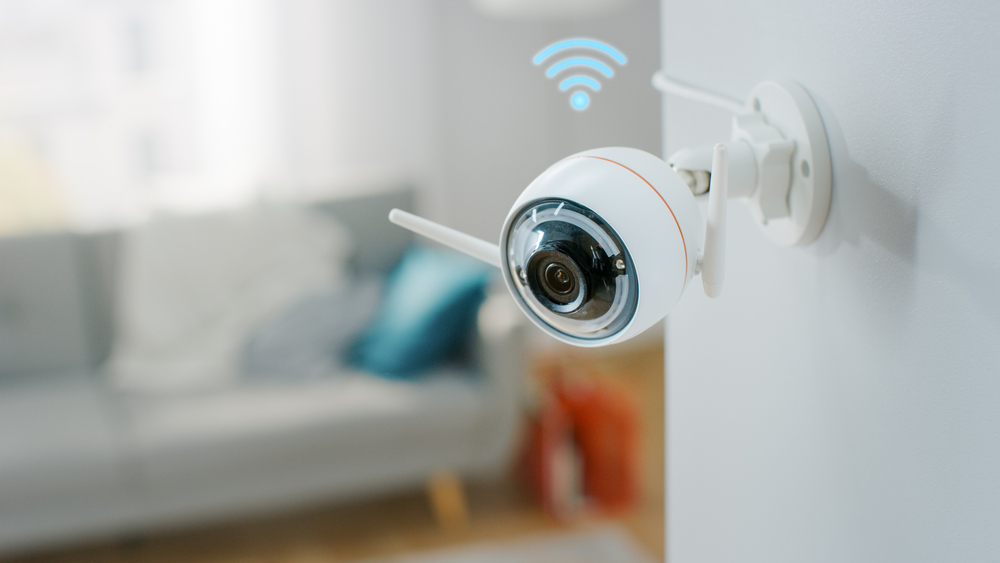
How Much Data Does A Security Camera Use? Tremendous Insights!

Introduction to Security Camera Data Usage
Understanding the data consumption of security cameras is crucial for households aiming to optimize their home security systems. As security cameras become more advanced, the amount of **data they use** has significantly increased. Knowing how much data does a security camera use helps homeowners manage their internet plans and storage solutions effectively.

Types of Security Cameras
Analog vs. IP Cameras
When considering data usage, it’s important to note the difference between analog and IP cameras. **IP cameras** generally consume more data compared to analog ones due to their higher resolution and advanced features.
Wireless vs. Wired Cameras
Wireless cameras rely on your Wi-Fi network, whereas wired cameras do not impact your internet data usage. Therefore, understanding the type of camera you are using will give you a better picture of your data consumption.

Factors Affecting Data Usage
Resolution
The higher the resolution of your camera, the more data it will use. Cameras with 4K resolution will use more data compared to those with 1080p or 720p.
Frame Rate
Frame rate, measured in frames per second (fps), also affects data usage. A higher frame rate means more data consumed. For instance, a camera capturing at 30 fps will use twice the data as one capturing at 15 fps.
Calculating Data Usage
Formula for Data Usage
One way to calculate data usage is by using the following formula: Data Usage (in MB) = (Bitrate in Mbps * 60 * Minutes) / 8. By plugging in different values, you can estimate your camera’s data consumption.
Example Calculations
Let’s assume you have a 4K camera with a bitrate of 20 Mbps. If it records for an hour, the data usage would be (20 * 60 * 60) / 8 = 5400 MB or 5.4 GB. This illustrates how quickly data can add up.
Video Compression Techniques
H.264 and H.265
Most modern cameras use video compression standards like H.264 or H.265 to reduce data usage without compromising quality. H.265 offers more efficient compression, reducing data consumption by nearly half compared to H.264.
Importance of Compression
Compression techniques are essential for minimizing data usage and making the streaming smoother. Cameras equipped with advanced compression can save significant amounts of data.
Storage Solutions
Cloud Storage
Cloud storage allows for easy access and sharing but can consume considerable bandwidth. It is essential to choose a cloud service provider that offers efficient data management solutions.
Local Storage
Using local storage, such as **SD cards or NVRs**, can help manage data usage more effectively since it doesn’t rely on a continuous internet connection.
Real-world Usage Scenarios
Residential Settings
For home use, most users opt for 1080p cameras. On average, a 1080p camera can consume between 60-120 GB per month, depending on factors like activity levels and recording schedules.
Business Settings
Businesses may prefer higher resolution cameras with advanced features like motion detection. A single 4K camera can consume between 400-500 GB per month, necessitating robust internet plans and storage solutions.
Optimizing Data Usage
Adjusting Camera Settings
Reducing resolution, frame rate, and using motion detection can significantly lower data usage. Many cameras allow for these adjustments in their settings menu.
Use of Analytics
Advanced analytics can help manage data consumption by identifying usage patterns. This allows for more strategic planning and efficient data management.
FAQs
How can I reduce my security camera’s data usage?
Adjusting the camera’s resolution, frame rate, and using motion detection features can help reduce data usage effectively.
Does cloud storage increase data consumption?
Yes, cloud storage can significantly increase data consumption as it requires continuous uploading and downloading of footage.
What is the best compression format for reducing data usage?
H.265 is currently the most efficient compression format, offering significant reductions in data usage compared to H.264.